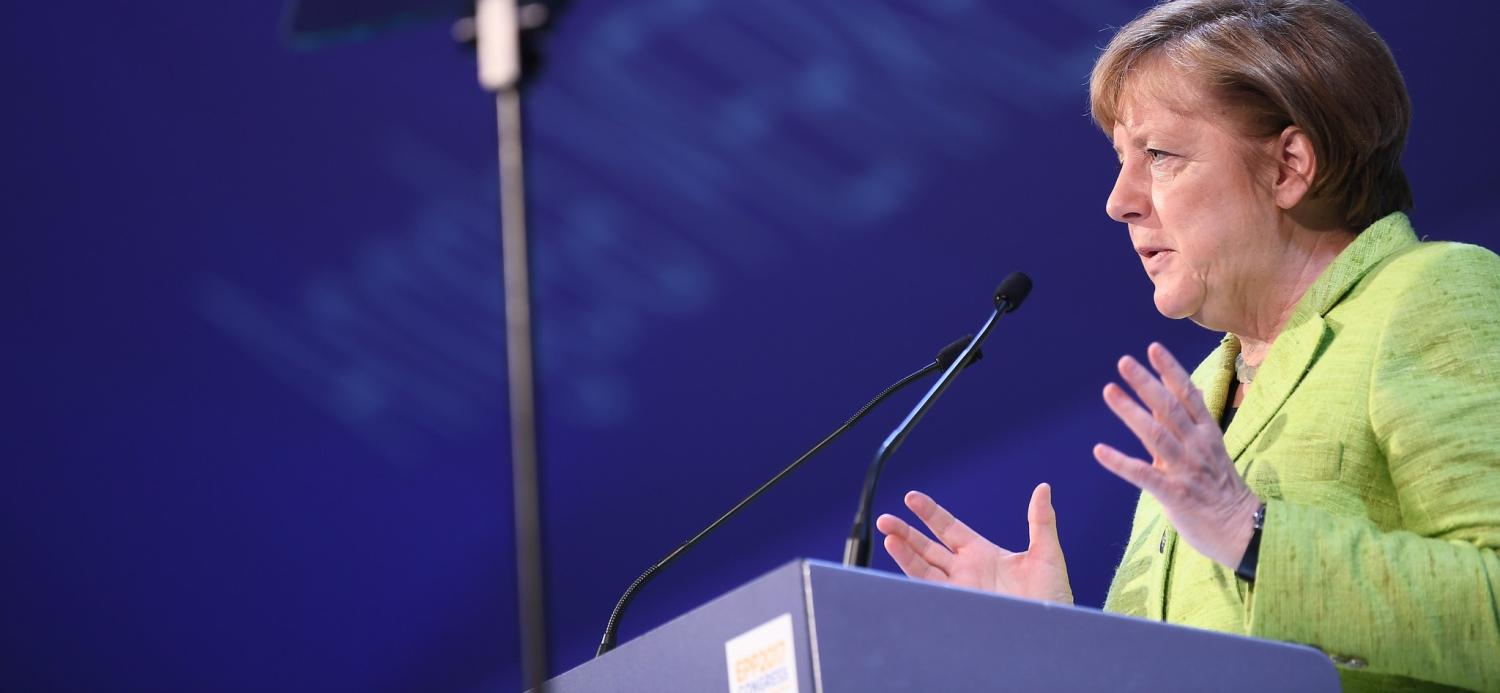German Chancellor Angela Merkel might have just told the Frankfurt beer hall crowd earlier this week that 'The times in which we could completely depend on others are on the way out'. But she didn't stop there, choosing instead to emphasise the just-completed NATO and G7 meetings with President Trump: 'The times in which we could completely depend on others are on the way out. I've experienced that in the last few days' (my emphasis).
Trump Derangement Syndrome has now reached such epidemic proportions in the public debate that it can be hard to resist this framing. But as David Frum observed, although Trump is clearly making things worse, the fraying of the US-Germany partnership is a story as long as the post-Cold War era. It's no coincidence the raison d'être for the NATO alliance and for America's deep involvement in European security has also faded over this period.
Trump doesn't radically change the big historical trends, but he brings the contradictions of America's global alliance arrangements into sharper relief and accelerates America's transition from 'indispensable nation' to a more normal great power.
So perhaps Merkel saw Trump as an opportunity. It would have been almost impossible for the German Chancellor to make an argument for greater European self-reliance if Hillary Clinton had won the election, even though those same contradictions would have existed. But in the circumstances, Merkel can carry the German people with her because they deeply dislike Trump and now put the US and Russia on a par when it comes to trustworthiness.
So, should Merkel be re-elected in September, she will have a mandate for a more independent foreign-policy posture. But what would she do with it? I argued in 2014 that 'Merkel seems to be on the cusp of a rare type of global political celebrity' which could give her the platform to exercise substantial global leadership. Merkel's status has only grown since 2014, but as I noted at the time, Merkel's own commitment to a European vision places limits on German foreign-policy leadership, and in her speech in Frankfurt, Merkel was again keen to emphasise that 'We Europeans truly have to take our fate into our own hands' (emphasis mine).
Moreover, as The Economist has observed, Merkel 'is not the queen of Europe, nor has she any desire to be it. She is a domestic leader and politician whose mounting international stature is always a function of her ability to serve the interests and predilections of German voters.' Add to that the fact that Europe will be consumed with Brexit negotiations for some years, and that voters across Europe are stubbornly resistant to ever-closer integration, and it's hard to come away from Merkel's declaration of independence with the sense that Europe is set on a well-defined path to global leadership.
Photo by Flickr user European People's Party.

